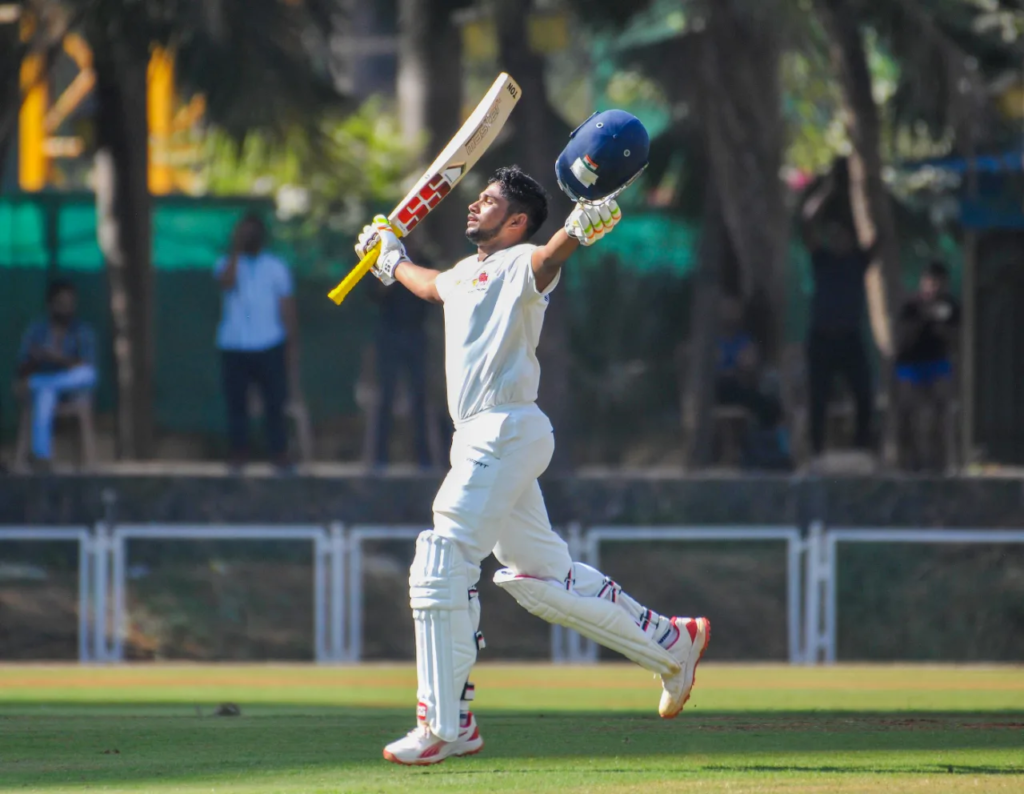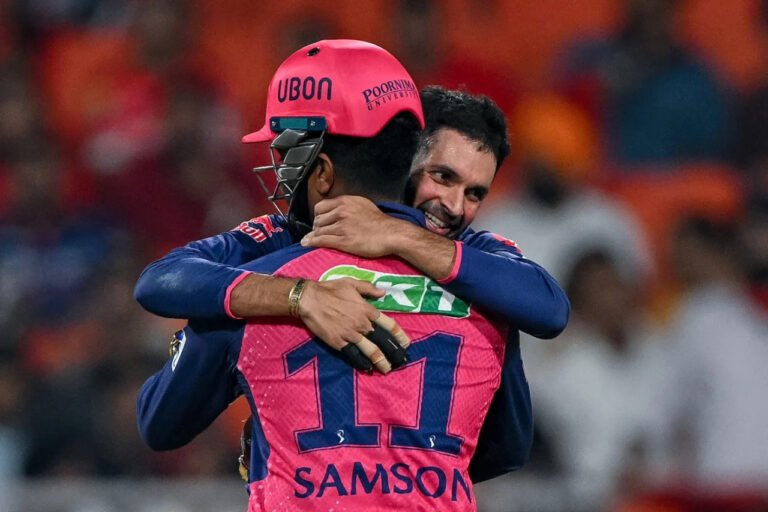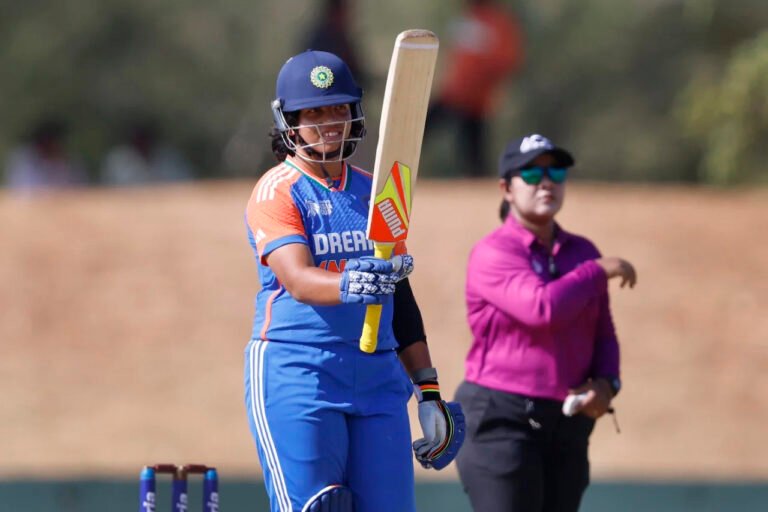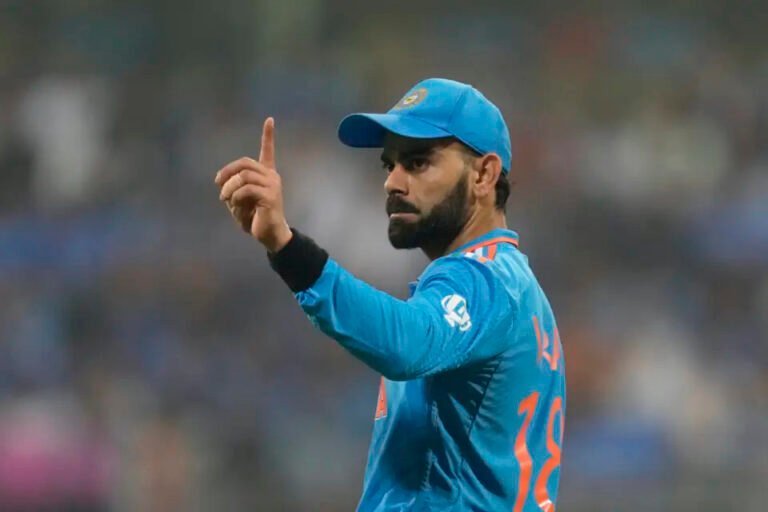18 Years Old Sensation Musheer Khan Shines in Mumbai’s Ranji Trophy Quarter-Final
In the thrilling Ranji Trophy quarter-final clash between Mumbai and Baroda, 18-year-old Musheer Khan emerged as the hero for Mumbai, crafting a remarkable century under pressure.

In the U-19 World Cup, he was the assault leader, but in this instance, he made a superb century by exercising patience and minimizing danger.
An equally large embrace for the younger boy on Friday, and a bear hug for the elder one last week.
If Naushad Khan’s heartfelt responses to Sarfaraz Khan’s Test debut in Rajkot went viral on social media the previous week, then his touching embrace for Musheer Khan last evening following his first-class hundred in Mumbai remained unreported.
Musheer, who is only eighteen, was participating in his fourth first-class match. Mumbai was playing Baroda at home in the Ranji Trophy quarterfinal. Mumbai was at a perilous 90 for 4 on a twisting and bouncing track after winning the toss. Without the injured Shreyas Iyer (back spasms) and Shivam Dube (side strain), without Sarfaraz (on national service), and with an out-of-form skipper Ajinkya Rahane (averaging 13.11 this season), the weight of Mumbai’s expectations placed on Musheer’s young shoulders as he walked out at No. 3.
He had just returned from South Africa, where he competed in the Under-19 World Cup and finished second with an average of 60 and a strike average of 98.09. It was white-ball cricket, so Musheer had to score swiftly there, but he had to shift gears when he faced a challenging pitch at home.
“After the play of the day, Musheer said, ‘Taiyyari to Abbu har baar red ball ki hi karwate hain (Our father has always prepared us for the red ball).” “We continue to practice it, and I worked with the red ball for a few sessions after coming back from the Under-19 World Cup. I was therefore ready for this.”
Musheer knew he had to stay tight because Baroda’s spinners, especially the seasoned Bhargav Bhatt, were taking advantage of the pitch’s moisture. He avoided thinking about playing the big shots and instead depended on his technique to play the ball late. Musheer was careful to keep the ball close to the ground, unlike Sarfaraz, who is renowned for his aggressive batting and even for himself at the Under-19 World Cup, where he hammered eight sixes (the most for India). However, he did indulge in some bold sweeps.
Regarding his choice of shots, he remarked, “I trust my defense more.” “I knew that if I would defend and play with the straight bat then I won’t get out easily unless one of the balls suddenly took off from the pitch.”

It took Musheer a few minutes and nine balls on 96 to finally break the three-figure barrier with a single into backward square leg to raise his arms, perhaps due to anxieties from being in his nineties. Call it patience.
Hardik Tamore, Musheer’s teammate, also punched the air at his partner’s milestone, just as Sarfaraz had done when his India teammate Yashasvi Jaiswal reached the 200 mark in Rajkot last week. Tamore had reinterpreted the meaning of “digging in” during a four-day match. Tamore had gone from 4 off 43 to 15 off 90 at tea and 30 off 163 at stumps, including 137 dot balls, in their uninterrupted partnership of 106 for the sixth wicket.
“My mindset was to talk to my batting partners to bat the whole day,” Musheer stated. It’s difficult to bat on this wicket, and you’ll never be set, regardless of how many runs you score—100 or two hundred. While some [balls] were straightening, others were twisting. We had to make do with singles since you can only score boundaries when you get those kind of balls.
Regarding Tamore’s hit, Musheer remarked, “He wasn’t as settled early on but he defended his way through it and things got easier.” Our strategy involved batting all day long with the goal of accumulating five to six runs at a time.
“Poora 90 overs khelne ka koshish tha, sir ne kaha tha khade rehna (The aim was to bat the whole 90 overs, that’s what the coach Omkar Salvi had told us).”
Following three first-class matches in which he recorded a career-high 42, Musheer believes he’s learned to be cautious and not plan too far ahead. At the age of 17, he might have been a little too eager to succeed. It was called “ghai” in Mumbai slang, which means to move quickly.
I don’t think about many things these days; instead, my main goal is to play my regular game. It’s okay if I leave early; if not, I want to bat well.”
The brothers have given their father a prize for the years of hard work he has put in with them in only ten days. Before he can see his son properly again, a noticeably exhausted Naushad waits outside on a bench while Musheer receives a massage at the conclusion of the day. Naushad is getting tired of having to travel all the time, whether it’s to Hyderabad for the BCCI awards, Rajkot for his Test debut, or occasionally back home to Uttar Pradesh.
The fact that the fruits of all his labor have just now begun to manifest could, however, provide him with immediate comfort.






